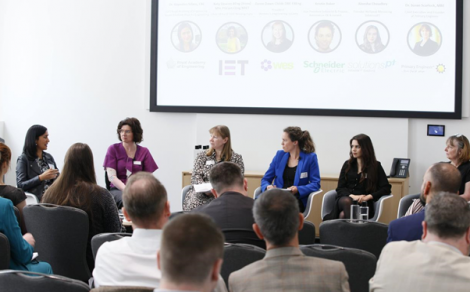Attitudes to UK Industry: International Women in Engineering Day report

International Women in Engineering Day 2023 (INWED 23rd June) was recently profiled at an Editors’ briefing in London.
The thought-leadership panel discussion featuring leading women in the field of industrial engineering met to discuss Equality, Diversity & Inclusion (EDI) and the reality of being a woman in the workplace. Attitudes to UK Industry (ATUKI) also unveiled its latest public perceptions report on Attitudes to Women in Engineering. Chaired by the CEO of The Royal Academy of Engineering and Queen Elizabeth Prize for Engineering Dr. Hayaatun Sillem, CBE, topics included how influential families are in encouraging children into engineering careers through to how inclusion avoids exclusion.
Dr. Sillem opened the session: “The engineering profession today is comprised of only 16.5% women, there are a whole raft of reasons about why it should be such an urgent priority because engineers shape the world that we live in. They design, deliver, and maintain the physical and digital infrastructure. They serve society and as such need to reflect society”.
Dame Dawn Childs, DBE, president of the Women’s Engineering Society (WES) and CEO of Pure Data Centres Group added: “INWED was created by WES to try to meet some of the challenges of diversity in engineering. It’s been a slow and hugely problematic process. As a business leader I believe that diversity drives the bottom line. If we’re not reflecting society then we’re not creating solutions for society. We’re effectively stopping half of the products that are needed from coming to market”.
Identifying how engineering fits into the world is a mantra offered by Primary Engineer which last year helped over 48,000 children of school age realise that engineering could be for them. Dr. Susan Scurlock, MBE, CEO of Primary Engineer said: “The inclusivity piece for us is about every child having the opportunity to have the experience of what engineering gets, what it does and how it fits into the world. It’s about children understanding the context of learning, so that they learn the curriculum through the lens of engineering and their support groups understand where it fits”.
All of the panellists cited their parents as having some form of influence over their decision to be an engineer. Dr. Sillem added: “Young people don’t make their career decisions in a vacuum. Parents and the others who influence them are really important to this topic”.
Katy Deacon, Chair of the Institution of Engineering and Technology (IET) EDI panel is in a positive position to influence how an organisation with such a large footprint is moving the EDI agenda forward. She said: “If you include everybody and you accept people for what they are and what they can bring then you will get a true reflection of the different perspectives within out society. This includes people with disabilities and other non-physical differences – neurodiversity for instance”. As a wheelchair user, Katy knows first hand how important the inclusivity piece is. “Disabled engineers bring a whole new perspective on the world. We (IET) are striving forward and showing the industry that you can get some incredible benefits by embracing EDI”.
-
PPMA 2025
23 September, 2025, 9:30 - 25 September, 2025, 16:00
NEC, Birmingham UK -
Advanced Engineering Show 2025
29 October, 2025, 9:00 - 30 October, 2025, 16:00
NEC, Birmingham UK










